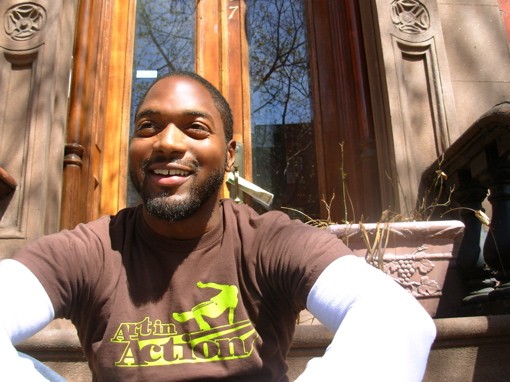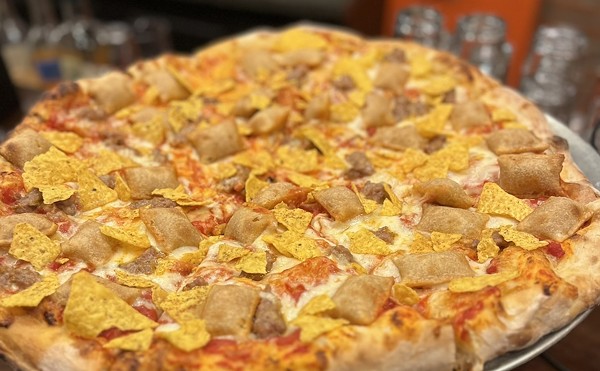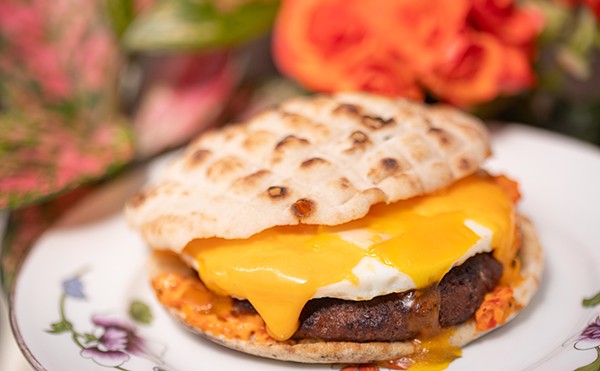Bryant Terry is on a quest to win over your stomach, your heart, and your mind. In his 2009 cookbook Vegan Soul Kitchen: Fresh, Healthy, and Creative African-American Cuisine, he manages to veganize the most animal-heavy cuisine in the world: southern soul food. Terry, who grew up in Memphis, went to college in Louisiana and graduate school in Manhattan (he now lives in Oakland), also manages to inject a heaping helping of political thought backed by an American soul soundtrack.
And he does it without proselytizing.
Terry will be in St. Louis Monday, March 1, and Tuesday, March 2, for book signings and cooking demonstrations at Washington University. We caught up with him in advance of his arrival, armed with a question or three.
You have a lot of different experiences in your background. What got you interested specifically in food justice work? A big part of all of the things that interest me is around being a grassroots activist -- organizing and coalition building.
As far as food justice specifically, what I was seeing was that social justice alone was missing the food angle, but in those communities where you're doing the most grassroots work, and where I was working on organizing people, the common thread was that all of those places had really high rates of chronic illness -- diabetes, cancer, heart disease -- all related to access to healthy foods. And food fit into the array of issues that were already being worked on. Material deprivation, like what you see in those neighborhoods, that touches on food, too. Through the lens of food, we can talk about immigration, human rights and environmental justice, because those communities are the ones most affected by the output of our food system now.
There has been a big push in a lot of inner cities toward community gardening. How do you see urban gardens fitting into a changing food system? One of the very first steps is changing people's habits, their attitudes and their politics. We need to change their eating habits, their attitudes towards cooking and the food that they eat, and how they use themselves in the political environment.
Speaking of the political environment, what are your feelings about the First Lady's recent childhood obesity initiatives? I'm excited about it! This administration has been taking big steps towards symbolic and substantive change around health and farming issues. Michelle started her organic garden, and they hired a chef and people in food service who are knowledgeable and abreast of and caring about farm-to-table and the school-lunch issues that directly tie into Michelle's obesity initiative.
These are important symbols, and I hope there are equal resources and energy to drive these. But change is made on the ground, with the people living in those communities. This is one of the reasons why I'm glad this is part of the public discourse, so it's helping the energy continue.
Ultimately, though, I have these guiding mantras: visceral to personal to political. Visceral meaning that first gut reaction, where you're sitting around the table and eating delicious food! We're working towards good food at the table and ending the negative perceptions around healthy food and a plant-based diet. The ultimate goal is towards helping people organize to make policy changes. That means supporting small farmers who are doing things right, and not continuing to support the large-scale producers who damage the public health. And then actually following through with that [on a greater scale] by getting the populace to put pressure on the policymakers.
Bryant Terry will sign books and offer a live cooking demonstration, "Redefining Soul Food," at Washington University's Danforth University Center (6475 Forsyth Avenue, University City) on Monday, March 1, from 5-7 p.m. Beginning at 6 p.m. on Tuesday, March 2, Terry will help judge a vegan cooking competition pitting university dining service managers against one another. Click here for a flyer.







